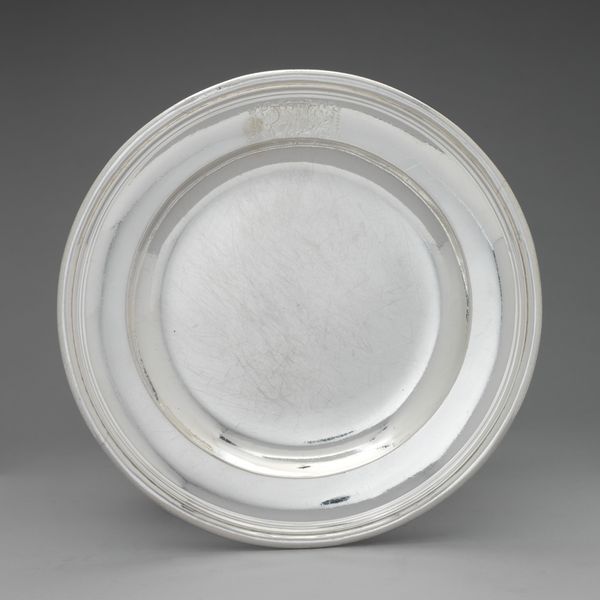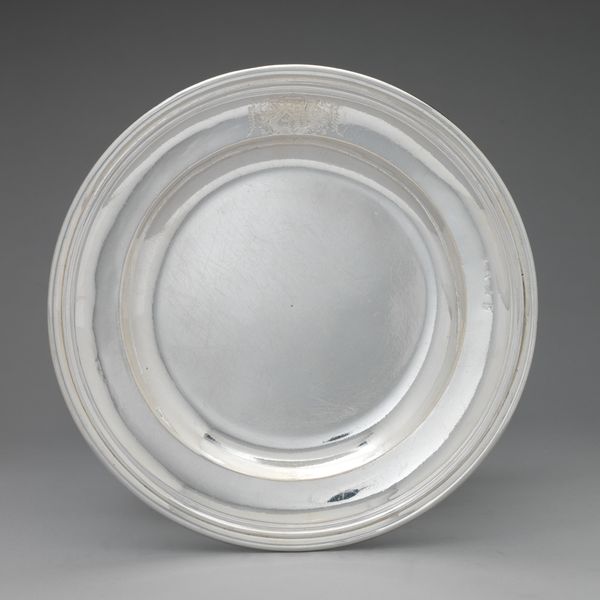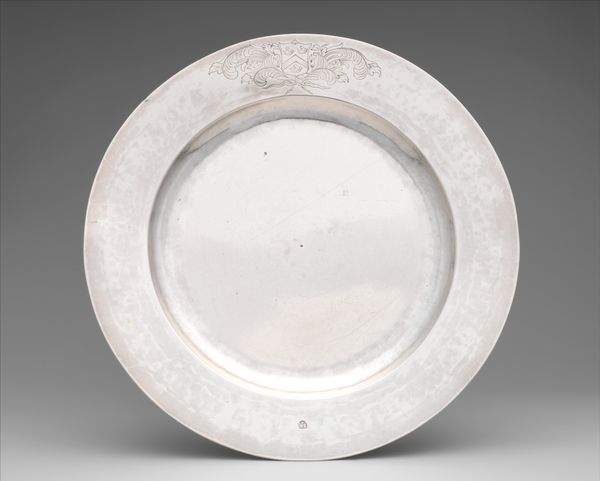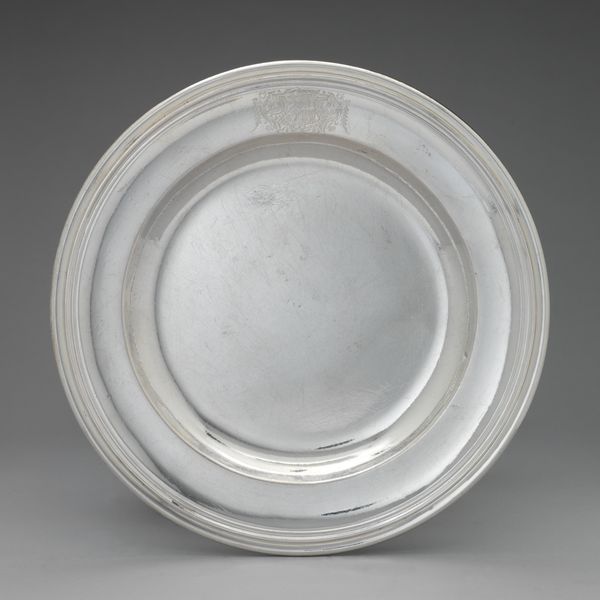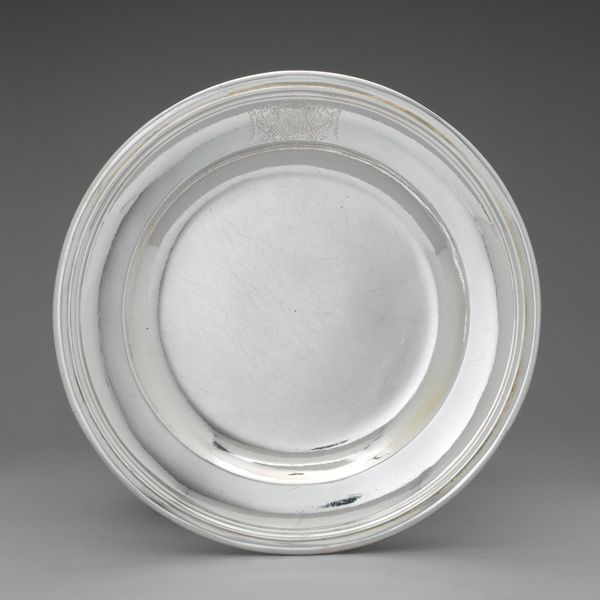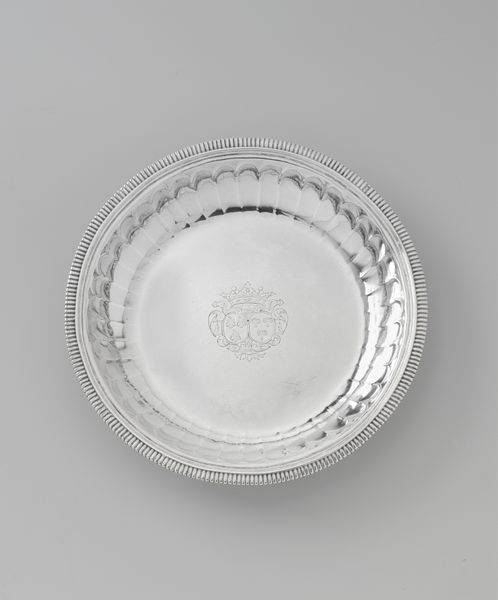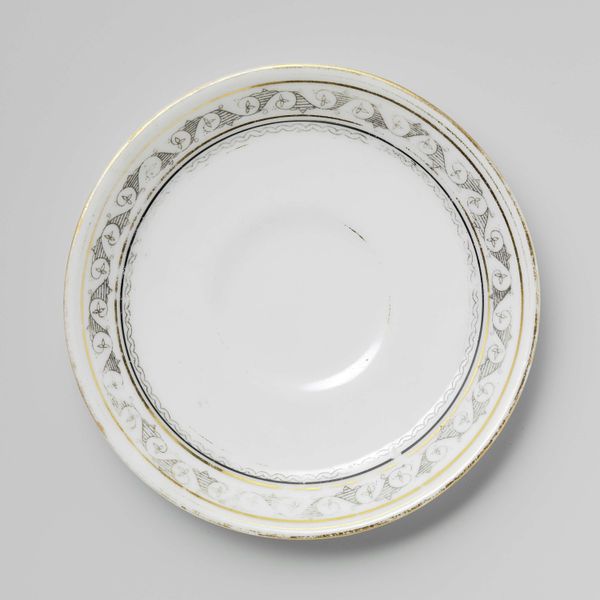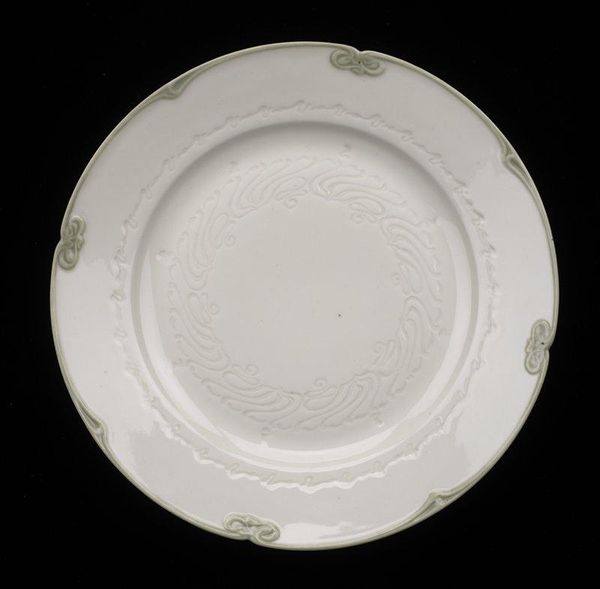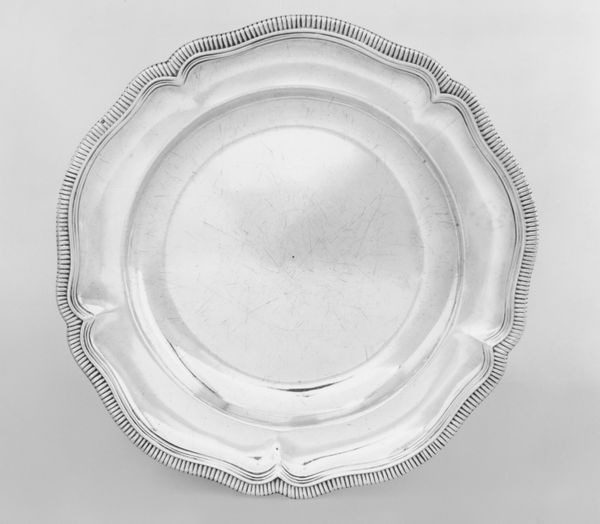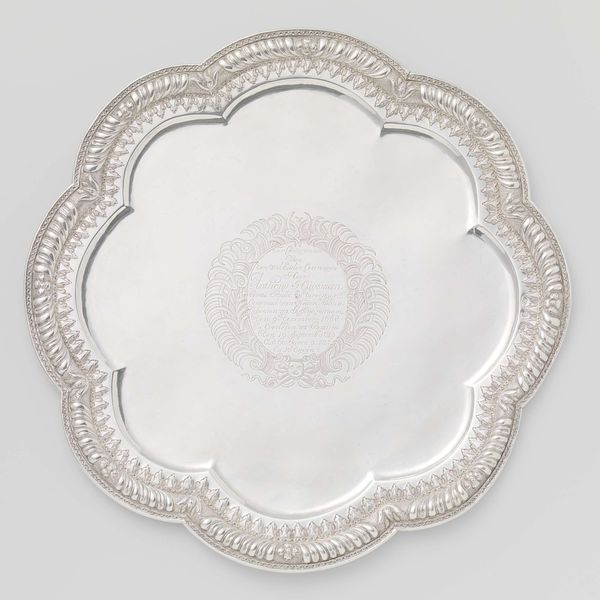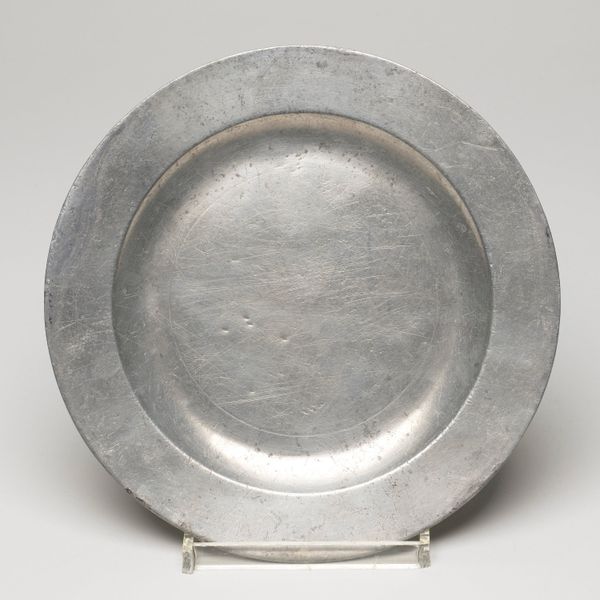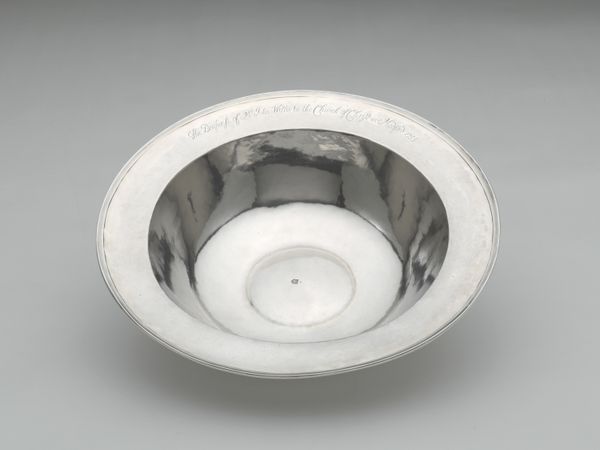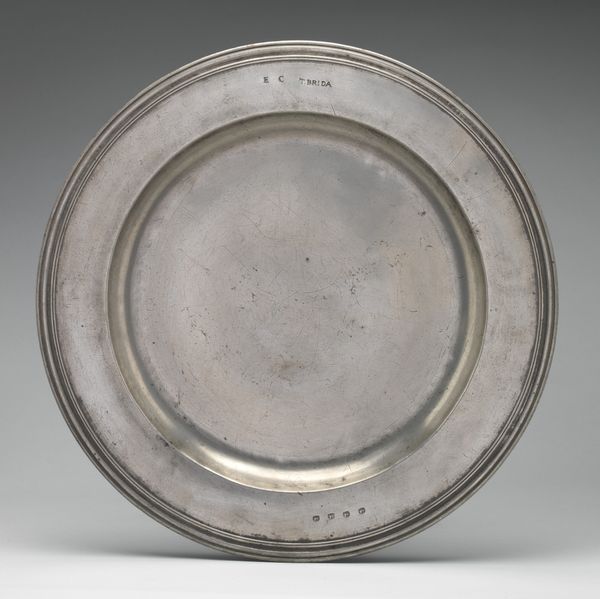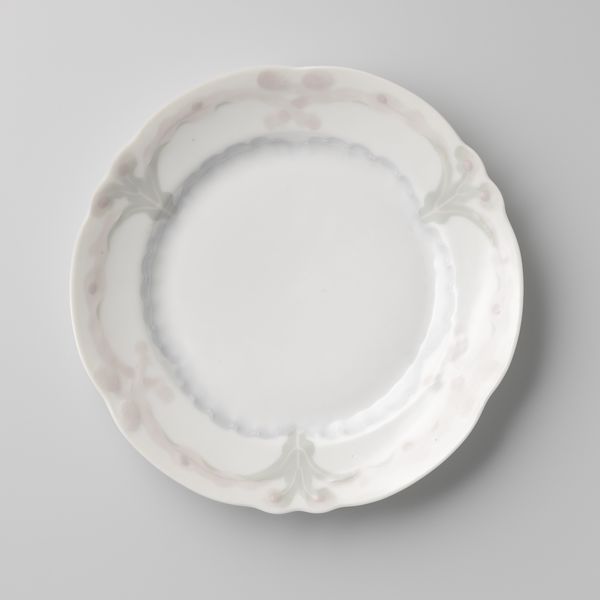
silver, ceramic, photography
#
silver
#
ceramic
#
photography
#
ceramic
#
united-states
#
decorative-art
Dimensions: 1 5/16 x 13 in. (3.3 x 33 cm); 24 oz. 5 dwt. (753.5 g)
Copyright: Public Domain
This communion dish was made in Boston in 1764 by Samuel Minott out of sterling silver. It is an impressive piece. The dish would have begun as a cast ingot, then hammered and shaped on a lathe. The marks of these processes are largely erased in the final polishing. Yet those processes are critical to understanding the dish's cultural significance. The silversmith's labor determined its value. Silver itself, although precious, derives worth from skilled manipulation. Minott was not just a craftsman but an entrepreneur embedded in the mercantile world. A leading silversmith in Boston, Minott would have been acutely aware of social and economic inequalities. Silver work such as this was deeply tied to the political climate. So, when we admire this gleaming surface, remember the many hands and historical forces that brought it into being. The communion dish invites us to look closely at the nexus of art, craft, and society in early America.
Comments
No comments
Be the first to comment and join the conversation on the ultimate creative platform.
